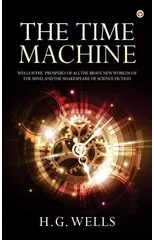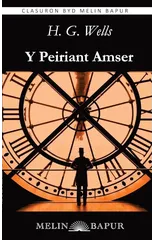The first great novel to imagine time travel, H. G. Wells’s The Time Machine (1895) follows its narrator on an incredible journey that takes him eventually to the earth’s last moments. When a Victorian scientist invents a machine that allows him to travel to the year A.D. 802,701, he encounters a highly evolved society of people called Eloi, for whom suffering has apparently been replaced by refinement and harmony. First impressions are misleading, however, and his discovery of the Eloi’s true relationship to the brutish Morlocks who lurk in tunnels beneath them leads him to a horrifying insight into the fate of mankind and its roots in his own time.
H.G. Wells
H.G. Wells was a prolific English writer best known for his science fiction novels. His most notable works include "The War of the Worlds," "The Time Machine," and "The Invisible Man." Wells' writing style was characterized by his imaginative storytelling, social commentary, and exploration of scientific concepts. He is often credited with popularizing the science fiction genre and influencing future writers in the field. "The War of the Worlds" remains his most famous work, depicting a Martian invasion of Earth and exploring themes of imperialism and the resilience of humanity. Wells' contributions to literature have had a lasting impact on the genre of science fiction and continue to be celebrated to this day.






